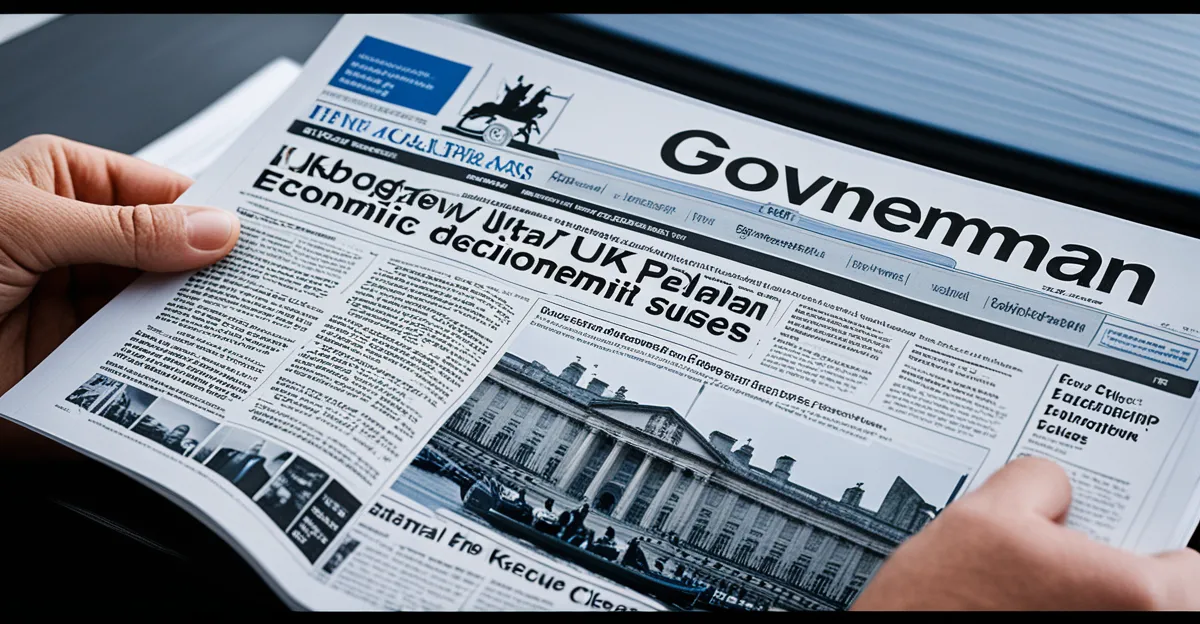Summary of the UK Government’s Recent Economic Measures
The UK government economic policies have focused on combating pressing challenges like rising inflation, elevated unemployment rates, and sluggish economic growth. Recent government plans include targeted fiscal and monetary interventions designed to stabilise the economy while promoting recovery. Officials have consistently emphasised the urgency of balancing inflation control with support for vulnerable households.
Key government announcements revealed a multi-pronged approach to these issues. Measures such as increased public spending paired with adjustments in tax and benefit schemes are intended to cushion the population against economic shocks. For example, initiatives aiming to alleviate energy costs and boost disposable income highlight the government’s responsiveness to current UK economic challenges.
In the same genre : What Are the Key Concerns Facing the UK in the Near Future?
The timeline of recent policy actions spans the past year, beginning with emergency relief packages introduced during high inflation peaks and extending into longer-term plans for economic resilience. Taken together, these policies reflect an evolving strategy aimed at restoring growth, reducing unemployment, and curbing inflation pressures efficiently. The government aims to use a blend of fiscal and monetary tools, coordinating closely with the Bank of England, to achieve these goals effectively.
Fiscal Policies and Public Spending Initiatives
The UK government economic policies include significant expansions in government spending aimed at stimulating growth amid persistent challenges. Recent government plans feature increased public investment in infrastructure, healthcare, and social services to boost demand and create jobs. Alongside spending rises, the government has adjusted budget policy by revising tax thresholds and enhancing direct support for households facing rising living costs.
Additional reading : How Does the UK News Landscape Differ Across Regions?
These fiscal stimulus efforts are designed to balance immediate relief with long-term economic resilience. For example, specific packages target assistance for lower-income families and small businesses impacted by inflationary effects. The government’s strategy combines temporary benefit uplifts with sustainable investment in sectors key to future productivity.
Changes in taxation policies include upratings to thresholds to reduce the fiscal burden on middle earners, aligning with efforts to increase disposable income and consumption. Additionally, public sector pay adjustments aim to address recruitment and retention challenges, indirectly supporting broader economic stability.
The timeline of these fiscal policies reveals a phased approach, starting with emergency relief at inflation peaks, followed by more strategic budget allocations in recent months. The government expects these measures to complement monetary policies, creating a cohesive fiscal and financial response to the UK’s current economic challenges.
Monetary Policy Adjustments and Inflation Control
The Bank of England plays a pivotal role in the implementation of UK monetary policy, primarily through setting key interest rates to influence economic activity. Recent UK government economic policies have emphasised close coordination with the Bank to manage inflation effectively. Monetary policy adjustments aim to stabilise prices while supporting growth, using interest rate changes to moderate inflation without derailing recovery.
To tackle persistent inflationary pressures, the Bank has gradually increased interest rates, a deliberate move to reduce demand and slow price rises. This approach is central to inflation management, as higher rates typically discourage borrowing and spending. Complementing this, the government’s fiscal initiatives work in tandem with monetary policies, creating a balanced framework addressing both supply and demand sides of the economy.
Recent measures also focus on maintaining consumer confidence during periods of economic uncertainty. By signalling steady inflation control efforts, the Bank supports stable financial markets and reinforces trust in monetary frameworks. The evolving timeline of these policies reflects responsiveness to fluctuating economic data, showcasing a dynamic partnership between the Treasury and central bank in confronting current UK economic challenges.
Strategies for Employment and Business Support
Addressing current UK economic challenges, the government has intensified efforts in UK unemployment policies and business support schemes to bolster the labour market. Recent initiatives focus on expanding job retention programmes and incentivising hiring, helping to reduce unemployment rates amid economic uncertainty. For example, wage subsidy schemes and targeted grants aid small and medium enterprises (SMEs), crucial for safeguarding jobs and facilitating recovery.
Training and retraining initiatives form a core part of these policies. By offering skills development and apprenticeships, the government aims to equip workers with capabilities aligned with evolving market demands. This approach not only addresses immediate unemployment but also enhances long-term workforce adaptability, a key factor in sustainable growth.
Several case studies highlight the benefits of these schemes. Businesses in sectors hit hardest by inflation and slow growth have accessed support, allowing them to maintain operations and retain employees. Such measures illustrate the multifaceted response embedded in recent government plans. These strategies aim to create a more resilient labour market and stimulate economic activity concurrently, forming an integral component of the broader UK government economic policies.
Expert Analysis and Future Outlook
Economic expert analysis UK widely recognises the government’s multi-faceted approach to current UK economic challenges as both necessary and cautiously optimistic. Analysts appreciate the balance struck between fiscal loosening and monetary restraint, noting that recent government plans demonstrate adaptability in a complex environment. However, experts caution that inflation control remains fragile, with risks tied to external shocks and supply chain disruptions.
Government policy impact has been significant in stabilising growth and employment, yet some economists urge vigilance regarding public debt and long-term fiscal sustainability. The interplay of expanded public spending and careful interest rate adjustments reflects a nuanced understanding of economic dynamics, suggesting cautious optimism for recovery. Notably, experts highlight the importance of targeted support for vulnerable groups to ensure inclusive growth.
Looking ahead, economic outlook projections commonly stress uncertainty amid global tensions and fluctuating market conditions. Still, continued collaboration between fiscal authorities and the Bank of England is expected to refine policy calibration. This ongoing dialogue, paired with data-driven adjustments, provides a framework for managing inflation while fostering job creation and economic resilience confidently.

